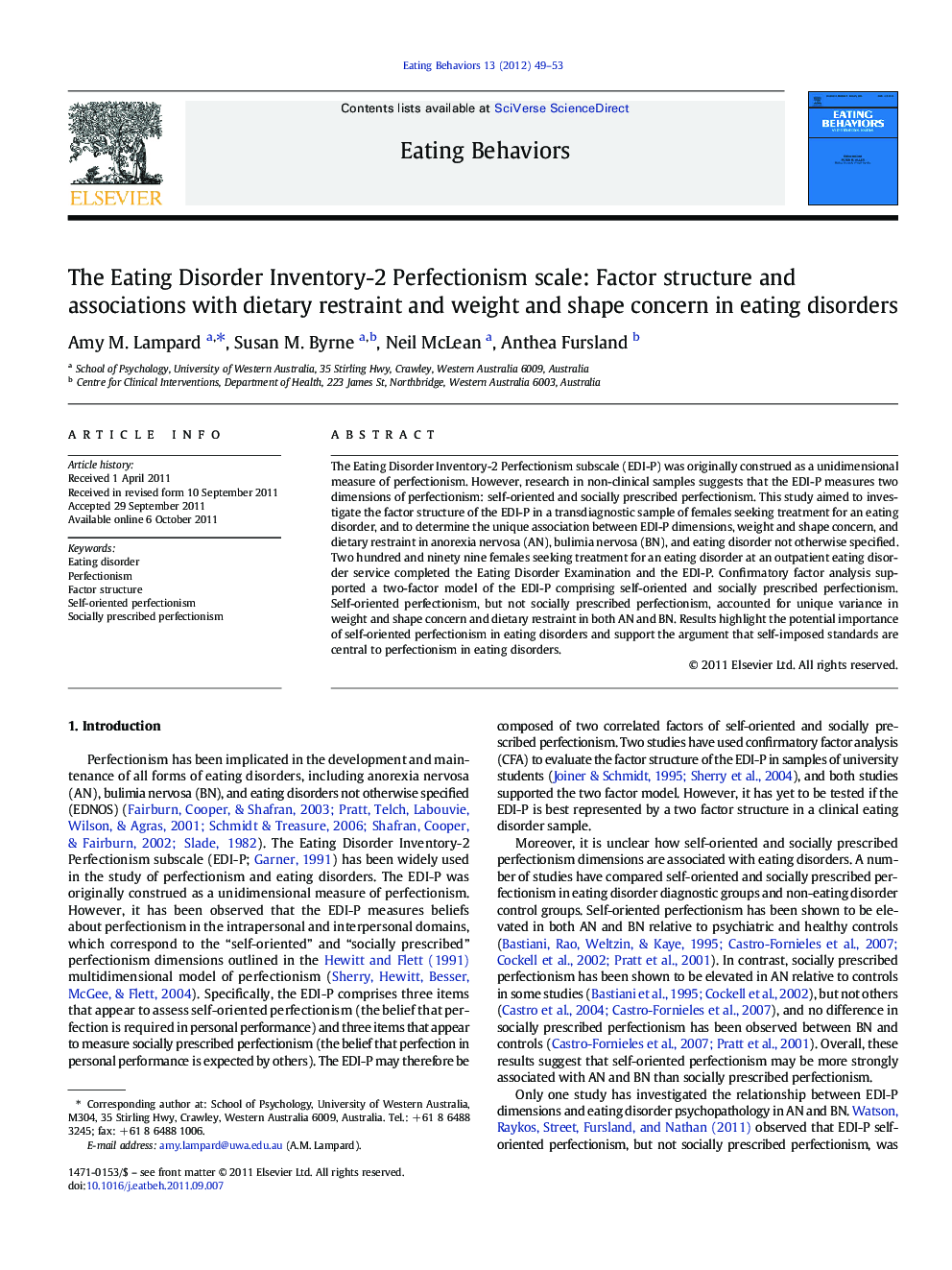| کد مقاله | کد نشریه | سال انتشار | مقاله انگلیسی | نسخه تمام متن |
|---|---|---|---|---|
| 906516 | 917008 | 2012 | 5 صفحه PDF | دانلود رایگان |

The Eating Disorder Inventory-2 Perfectionism subscale (EDI-P) was originally construed as a unidimensional measure of perfectionism. However, research in non-clinical samples suggests that the EDI-P measures two dimensions of perfectionism: self-oriented and socially prescribed perfectionism. This study aimed to investigate the factor structure of the EDI-P in a transdiagnostic sample of females seeking treatment for an eating disorder, and to determine the unique association between EDI-P dimensions, weight and shape concern, and dietary restraint in anorexia nervosa (AN), bulimia nervosa (BN), and eating disorder not otherwise specified. Two hundred and ninety nine females seeking treatment for an eating disorder at an outpatient eating disorder service completed the Eating Disorder Examination and the EDI-P. Confirmatory factor analysis supported a two-factor model of the EDI-P comprising self-oriented and socially prescribed perfectionism. Self-oriented perfectionism, but not socially prescribed perfectionism, accounted for unique variance in weight and shape concern and dietary restraint in both AN and BN. Results highlight the potential importance of self-oriented perfectionism in eating disorders and support the argument that self-imposed standards are central to perfectionism in eating disorders.
► Confirmatory factor analysis of the Eating Disorder Inventory-2 Perfectionism scale.
► A two-factor model of perfectionism was supported in a transdiagnostic sample.
► The two factor model comprised self-oriented and socially prescribed perfectionism.
► Self-oriented perfectionism was associated with restraint in all diagnostic groups
Journal: Eating Behaviors - Volume 13, Issue 1, January 2012, Pages 49–53